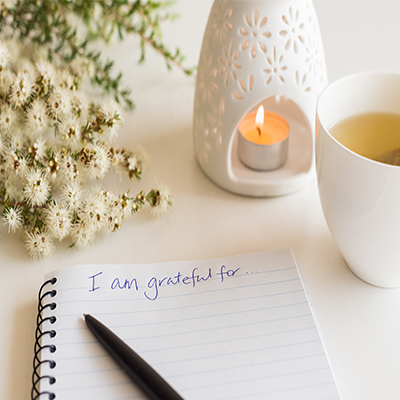Journaling helps to create a safe space to grow and evolve – and writing helps to awaken oneself.
Learn How Journaling Can Help You Become Calm, Self-aware, Mindful, and Resilient.
How the practice of journaling may benefit you in some, or all of these ways.
- The act of journaling stimulates and expands your creative output and provides the permission and space to sit in the calm and quiet of your thoughts long enough to place them on paper. With the rush of the world today, as we quickly move from one thing to another, journaling can serve as a time when you allow yourself that mental/mindset break needed to increase awareness and creativity.
- With the practice of journaling, you create a dedicated time and space. Reflecting on your feelings and emotions is safe. Your journal practice allows you the opportunity to check in and face yourself, honestly and authentically every day. As a result, you’ll find greater self-awareness and self-transformation. The positive benefits of self-awareness and transformation are resilience, joy, gratitude, and positive feelings. Conversely, without awareness, people are stuck in their passionless, and passive life which can create a disconnect from oneself, causing anxiety and depression.
- Sitting with your feelings and thoughts long enough to put them on paper, allows you to feel the entire range of emotions you might not otherwise have taken the time to process. Really honoring your feelings in this way creates a sense of inner peace and relief.
- Our brains work overtime trying to create a new norm so that we are adaptable to our environment quickly. Writing down your accomplishments will help you remember how wonderful you are as you look back on your life.
- By journaling daily, you set time aside for yourself because you matter enough. You take the time to put your intangible thoughts and feelings on paper, making them tangible.
Journaling serves many purposes beyond writing down feelings or what happened in your day. Five purposes that journaling can serve depending on where you are with regard to your energy needs.
- Journaling is a useful way to track your progress and goals
- Journaling helps you track and grade your progress
- Journaling also serves as a way to record one’s life by recording daily happenings and how one felt about them
- Journaling can serve as a therapeutic tool, helping to process and heal your feelings
- Journaling can create awareness around your wins, making it easier to identify and celebrate your accomplishments
Do you think about taking up the practice of journaling, but you don’t know where to start? Some people use digital voice recording for their journaling activity, but studies show there is a benefit to the act of journaling with a pen. The act of writing helps one to process feelings and information better. Handwriting your thoughts and feelings is a slower process, allowing your brain to fully feel and process those emotions.
What journaling method works best for you? If you think typing will get you started and stay consistent, then type, and if handwriting feels better because it allows you the time and space to focus on your feelings, then do that. Either way, is easier than you might think, try it, it really can be life-changing. Rachel Graham’s journey has also included journaling, and learn more about her life-changing journey by contacting her for more information on how you can achieve your life’s goals and purpose.

